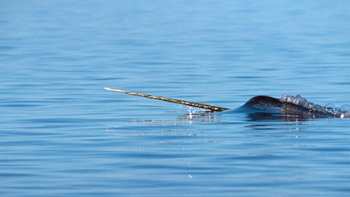Narwhal tusk-smuggling ring cracked by U.S. Justice Department
(ABC News) – The narwhal, a kind of Arctic whale, has been called “the unicorn of the sea” because of the long, straight, often spiraling tusk that males of the species can grow. It is illegal to import the tusks into the United States because narwhals are listed by the International Union for Conservation of Nature as near-threatened. Now the Department of Justice says it has cracked a smuggling ring that operated for nearly a decade, often shipping narwhal tusks from the Canadian Arctic over the border into Maine in a trailer with a false bottom. Two Americans have been arrested, and an indictment, provided to ABC News by the Justice Department, says they will be charged next week with smuggling and money laundering. “The conspiracy we’ve alleged was over a period of 10 years, so there appears to have been enough of a market to support that length of conduct,” said Todd Mikolop of the Justice Department’s environmental crimes section in an interview with The Associated Press. The indictment says Andrew Zarauskas of Union, N.J., and Jay Conrad of Lakeland, Tenn., will each face 29 federal charges for buying the tusks illegally, and two Canadian citizens — their names redacted — will face charges there for being sellers. […] What kind of money could be involved? A legal seller in British Columbia, Furcanada, said tusks can be more than 8 feet long and sell for $1,000 to $7,000 each. [more]
